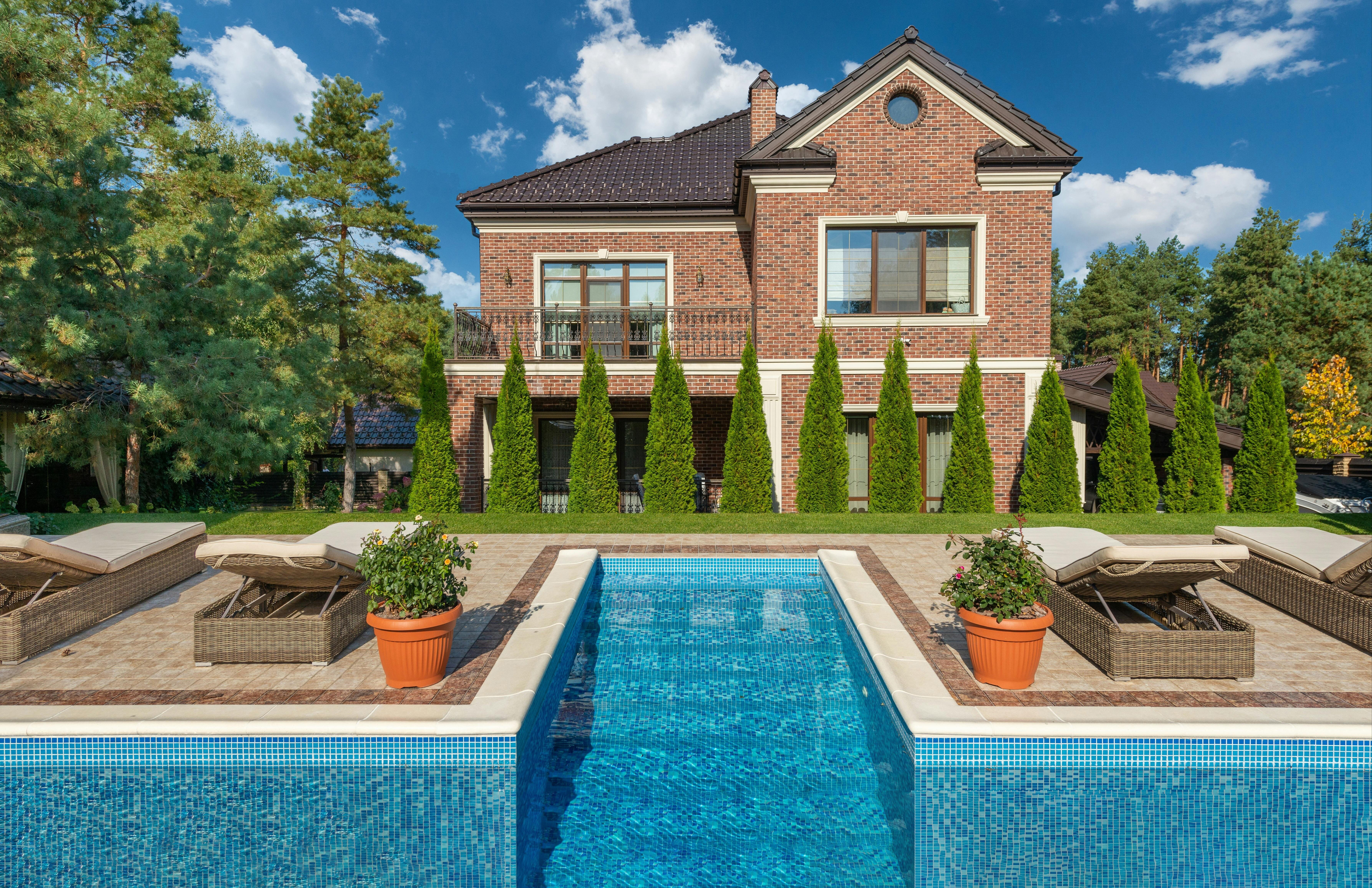
- 10 Jun 2024
- Law Blog
- Residential Property
Many of us dream about having our own pool, especially as summer approaches. What better way to beat a heatwave? And, on a more practical note, swimming is great exercise, suitable for all ages and fitness levels. So, if you are searching for your next home, a house with a pool may be high on your wish list.
‘With rising temperatures and longer summers, it is easy to see the appeal of a house with a swimming pool,’ agrees Edward Sharpe, Head of our Residential Property Team. ‘However, this amenity can raise issues, both practical and legal. So, it is important to do your homework first.’ Here he offers some advice before taking the plunge.
Ask yourself how often you will use the pool
In the heat of mid-summer, the attraction of a pool is obvious, especially if it comes with an outside entertainment area. However, think about how often you would use those facilities. Be realistic. Consider the location, the heating system (if any), whether the pool is covered, and how hardy you are. Bear in mind, it may take many weeks of higher ambient temperatures for the water in an outdoor pool to heat up.
If you are determined to swim all year round, you may need to consider incorporating a pool room, which will entail additional expense and may require planning permission. Discuss your plans with your surveyor, they can advise on the feasibility. Obtain an estimate for the work from a reputable builder and talk to your solicitor as well; they can give guidance about the necessary consents and whether any title restrictions would prevent you building there.
Understand the cost of owning a swimming pool
As well as the costs of any improvements, you will need to consider ongoing maintenance costs. These will depend upon the pool’s age, condition, and construction. You should budget for any repairs, parts, servicing, water, and the chemicals necessary to keep the pool clean. Checkatrade estimates the average annual maintenance cost for an outdoor pool as between £500 and £1,020. In addition, you should factor in the cost of electricity if the pool is heated, and regular electrical inspections.
To gain a better idea of the likely cost, ask the sellers about how much they have spent. Your solicitor can also ask them for details of major expenditure, and service records, together with confirmation they are not aware of any lack of repair. Having their written replies to pre-contract enquiries should ensure you have the full picture. While there is no guarantee there will be no issues in the future, this can give you confidence you are not buying into a pool with a problem.
Consider the pool’s condition and your longer-term plans
On average, an in-ground pool should last between 20 and 30 years. However, this will depend upon its construction and past maintenance. It is a good idea to take specialist advice, which may mean commissioning an additional report.
Generally, your surveyor will inspect the pool and consider any impact, such as subsidence, on the main property. However, they will not usually comment on the condition of the pool or any associated equipment. For this, you would need a specialist pool survey. This should reveal any major issues with the pool and indicate the likely cost of repair. If significant, you may ask the seller to carry out the work before you buy, or you could seek a reduction of the purchase price.
You should also consider what to do once the pool is no longer viable, particularly if it is already quite old. The cost of replacing it, or even filling it in safely, could be substantial. This is usually a professional job, especially if you intend to build over the site later. So, it is important to take specialist advice before you buy.
Check the pool complies with planning and building regulations
Unless the property is in a special area, such as a conservation area, an outdoor pool will not generally require planning permission. Any associated buildings may do, such as a plant room. Your solicitor will check all the necessary consents are in place. This is to ensure there is no risk of the local authority taking enforcement action. In a worst-case scenario, they could require you to remove the pool and any associated building and reinstate the garden back to its original condition.
Where works have recently been carried out, your solicitor will also ask about any guarantees or warranties. Ensuring the seller transfers their benefit to you means you should have the same rights against the contractor as they had. This can give you additional peace of mind where the pool is relatively new and still in its warranty period.
Ensure any legal issues are thoroughly investigated
Your solicitor will ask the seller about other issues that could affect your use of the property. It is possible, for example, that their use of the pool has given rise to complaints from neighbours. Noise from people using the pool is unlikely to amount to a nuisance that could give rise to legal action. However, a history of disputes could influence your decision to buy or how you intend to use the property in the future.
Occasionally, the seller’s replies to your solicitor’s enquiries may reveal other issues that need investigating. For example, the pool may have caused physical damage to a neighbouring property through subsidence, leakage, or the deliberate discharge of wastewater close to the boundary. In this case, your solicitor should check any issues are historic or ensure the seller settles them before completion. Otherwise, as owner, you could be liable to make good any damage and to compensate your neighbour for their loss.
Consider the impact when you come to sell
It may seem premature to think about selling up, but it is a good idea to consider the impact of a pool on your home’s future marketability before you buy. Some buyers, particularly in the country house and luxury market, expect a property to have a pool. However, other buyers may be put off by the cost of its upkeep or concerns about safety particularly if they have small children.
An independent estate agent, or your surveyor, can help you understand the potential impact. There are also simple things you can do to allay concern; keep your pool well maintained, keep any warranties or service records, and incorporate safety features, such as a pool alarm or fencing. As well as making your home more appealing to future buyers, this will ensure you get the most of your pool during your ownership.
How we can help
Whether you are buying a house with a swimming pool, plan to add one to your new home, or just want a conveyancer who truly understands your individual needs, we can help. Our conveyancers have extensive experience in all types of transactions.
For further information, please contact our Residential Property Team on 0800 542 4245 or info@sillslegal.co.uk.
This article is for general information only and does not constitute legal or professional advice. Please note that the law may have changed since this article was published.




 Edward Sharpe
Edward Sharpe